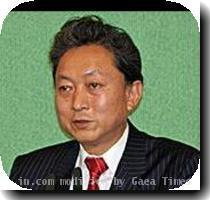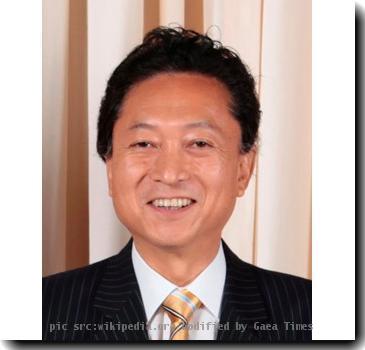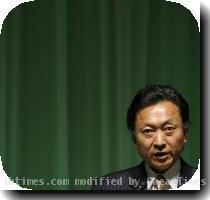Japan’s outspoken new prime minister, Naoto Kan, must win back voters’ trust by July election
By Tomoko A. Hosaka, APFriday, June 4, 2010
Naoto Kan elected Japan’s prime minister
TOKYO — Japan’s parliament elected outspoken populist Naoto Kan as prime minister Friday, handing the political veteran the immediate task of rallying his party and reclaiming its mandate for change before elections next month.
Kan succeeds Yukio Hatoyama, who stepped down Wednesday after squandering the public’s high hopes with broken campaign promises, including moving a U.S. Marine base off Okinawa island, and financial scandals.
“My task is to rebuild this nation,” said Kan, who was Hatoyama’s finance minister.
The 63-year-old with a reputation for confronting Japan’s powerful bureaucrats must contend with a daunting list of problems. The world’s No. 2 economy is burdened with the largest public debt in the industrialized world, sluggish growth and an aging, shrinking population.
But more immediately, with upper house elections looming in July, he will need to convince voters of his party’s competence after they were disappointed by Hatoyama’s financial scandals and bungled handling of the relocation of the U.S. Marine base in Okinawa.
In a statement Friday, Kan described the relationship with the U.S. as vital, but also stressed the importance of Asian neighbors.
He said he would honor the recent agreement between Tokyo and Washington reaffirming a 2006 deal to move U.S. Marine Air Station Futenma to a less-crowded part of Okinawa. Hatoyama’s failure to keep a campaign pledge to move Futenma off the island led to his downfall.
But Kan faces intense opposition from island residents who want the base moved off Okinawa entirely, and some analysts have questioned whether the plan can actually be carried out.
“This is an extremely tough issue that I must tackle firmly and patiently,” he said.
Kan’s first task will be to form a Cabinet. He said he would announce the members “early next week” after thinking about the posts over the weekend.
“We will work together as one in the face of the tough political situation and the upcoming upper house elections and fight together unified,” he told party members. “Our first priority is to regain the trust of the people.”
Kan, the country’s sixth prime minister in four years, pledged to confront problems linking money and politics. He also stressed the need for fiscal discipline while trying to spur economic growth.
Chosen Friday morning as new chief of the Democratic Party of Japan, Kan was voted into office a few hours later by the lower house, the more powerful chamber of Japan’s parliament.
Kan received 313 votes out of 477, with Liberal Democratic Party head Sadakazu Tanigaki getting 116. The rest went to candidates of smaller parties. The upper house approved Kan immediately afterward.
While his political philosophy is hard to neatly categorize, analysts and fellow lawmakers agree that his personal traits and background as a civic activist and pro-active Cabinet minister set him apart from Hatoyama.
“He has a record of acting on the basis of his beliefs and not backing down,” said Tobias Harris, a political analyst who once worked as an aide to a Democratic lawmaker in Japan. “Those are good signs for a prime minister, and I think those are qualities that Hatoyama did not have.”
With his ordinary upbringing, Kan represents a break with the past several prime ministers, including Hatoyama, whose fathers or grandfathers served as prime ministers. The son of a businessman, Kan graduated from the Tokyo Institute of Technology’s science department.
He began his political career as a civic activist in the 1970s and ran for office three times before winning a lower house seat in 1980 with the now-defunct Socialist Democratic Federation.
He gained respect from the public in the 1990s when as health minister he exposed a government cover-up of HIV-tainted blood products that caused thousands of hemophilia patients to contract the virus that causes AIDS.
Kan, along with Hatoyama, was one of several members in 1996 to found what eventually became the Democratic Party of Japan.
“I grew up in a typical Japanese salaryman’s family,” Kan said Thursday. “I’ve had no special connections. If I can take on a major role starting from such an ordinary background, that would be a very positive thing for Japanese politics.”
He proved to be a quick study as finance minister after taking the job in January with little background in economics or fiscal policy. Some former skeptics, who had worried about his preference for spending, now express cautious optimism about his potential as prime minister.
“After he got the job as finance minister, he realized how serious Japan’s fiscal problem is and will be,” said Masaaki Kanno, chief economist at JPMorgan Securities Japan and a former senior official at the Bank of Japan.
In the written candidate’s statement Friday, Kan identified economic recovery as the biggest challenge facing Japan, whose economy will almost certainly be overtaken in size by China this year. While exports and factory output are rising, unemployment and deflation are worsening.
“I will tackle and pull Japan out of deflation through comprehensive measures from the government and the Bank of Japan,” he said in the statement.
He pledged to resume fiscal reforms and work toward sustainable finances, including possible tax reform, to ensure a strong social security system for Japan’s aging population.
The Democrats are hoping that the resignations Wednesday of Hatoyama and the party’s No. 2 Ichiro Ozawa — both of whom were embroiled in political funding scandals — will give it a fresh face for July’s elections.
A poor performance in the upper house elections, where half the seats are up for grabs, would not threaten the Democrats’ grip on power because they command a large lower-house majority. But heavy losses would likely force the party to woo new coalition partners to ensure smoother passage of bills.
Associated Press writers Jay Alabaster, Yuri Kageyama, Malcolm Foster and Mari Yamaguchi contributed to this report.
Tags: Asia, Demographics, East Asia, Government Pensions And Social Security, Japan, Naoto, North America, Parliamentary Elections, Political Activism, Political Issues, Political Scandals, Population Aging, Prices, Tokyo, United States, Yukio Hatoyama


